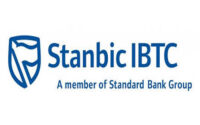How to Open a Domiciliary Account in Nigeria ([year])
In Nigeria, a domiciliary account is an essential financial tool for individuals and businesses looking to engage in international transactions, receive foreign currency payments, or hedge against currency fluctuations.
Whether you’re a freelancer earning in foreign currency or a business owner looking to expand globally, having a domiciliary account can provide convenience and flexibility. In this guide, we’ll walk you through the process of opening a domiciliary account in Nigeria.
- Choose a Bank:
The first step is to select a bank that offers domiciliary account services. Most commercial banks in Nigeria provide this service, so you can choose one based on factors such as reputation, accessibility, and fees. - Gather Required Documents:
Before heading to the bank, ensure you have the necessary documents for opening a domiciliary account. Typically, you’ll need the following:
- Valid means of identification (e.g., International passport, National ID card, or Driver’s license).
- Utility bill (e.g., electricity bill, water bill) or any other proof of address.
- Two passport-sized photographs.
- Tax Identification Number (TIN) or Tax Clearance Certificate (for some banks).
- Visit the Bank:
Once you have all the required documents, visit the chosen bank’s branch where you intend to open the domiciliary account. Approach the customer service desk or the accounts department and request to open a domiciliary account. - Fill Out Account Opening Forms:
The bank representative will provide you with the necessary account opening forms. Fill out the forms accurately and ensure all information provided is correct. - Submit Required Documents:
Along with the filled-out forms, submit the required documents mentioned earlier, including your means of identification, proof of address, passport-sized photographs, and any other requested documents. - Provide Initial Deposit:
Depending on the bank’s requirements, you may need to make an initial deposit to activate your domiciliary account. The minimum deposit amount varies across banks, so inquire about the specific amount needed. - Verification Process:
After submitting the documents and initial deposit, the bank will verify the information provided. This process may take a few days, during which the bank will authenticate your documents and conduct Know Your Customer (KYC) checks. - Receive Your Account Details:
Once your domiciliary account is successfully opened and verified, the bank will provide you with your account details, including the account number and any other relevant information. - Activate Online Banking (Optional):
Many banks offer online banking services for domiciliary accounts, allowing you to manage your account, make transfers, and track transactions conveniently. If available, inquire about activating online banking for your domiciliary account. - Start Transacting:
Congratulations! Your domiciliary account is now ready for use. You can start receiving foreign currency payments, making international transfers, or holding funds in various currencies.
Conclusion
Opening a domiciliary account in Nigeria is a straightforward process that offers numerous benefits for individuals and businesses involved in international transactions. By following the steps outlined in this guide and ensuring you have all the necessary documents, you can easily open a domiciliary account and enjoy the convenience and flexibility it provides in managing foreign currency transactions.



